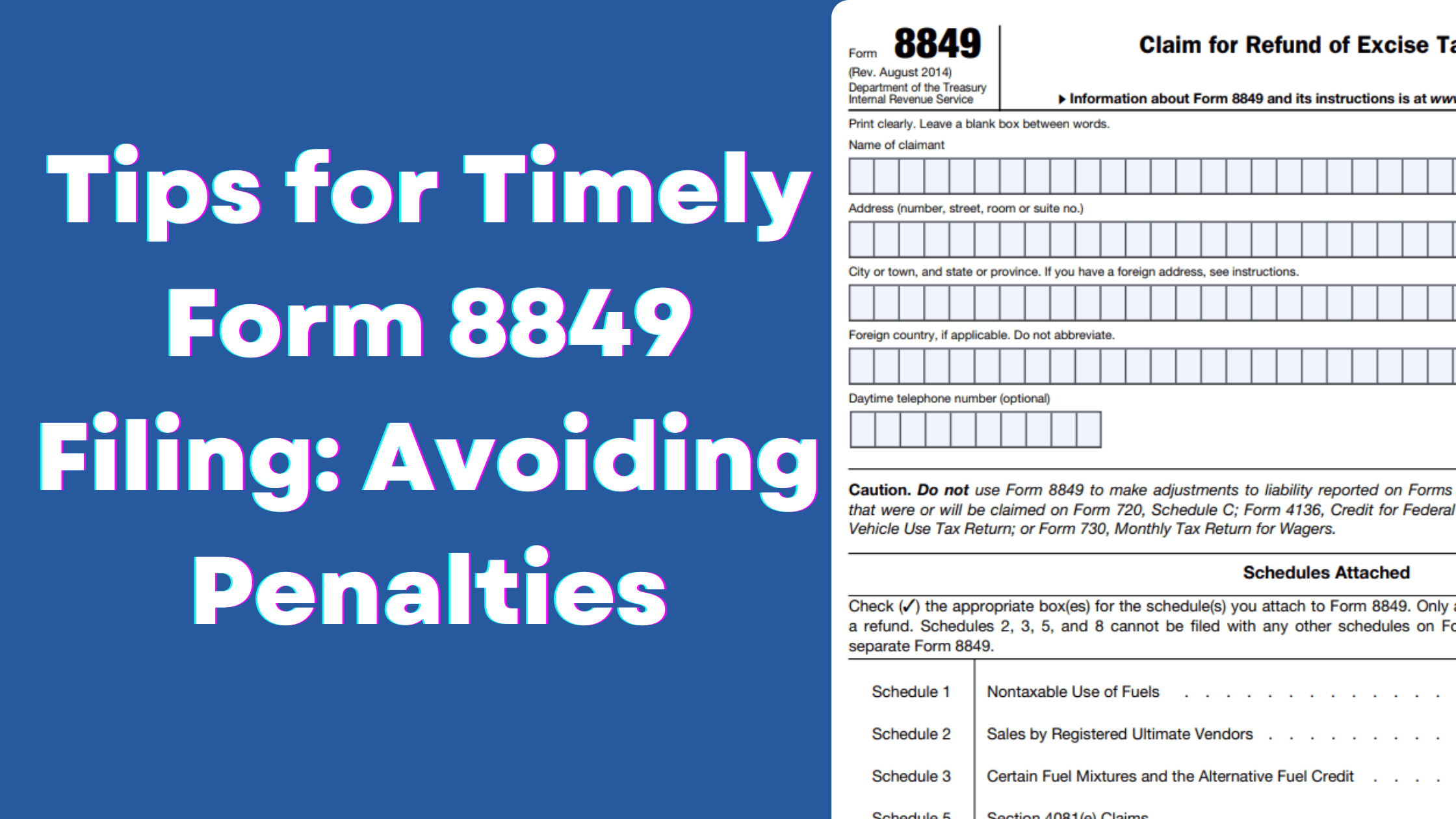
6 Tips for Timely Form 8849 Filing
Filing Form 8849 promptly is crucial for businesses seeking excise tax refunds, yet many encounter delays due to various reasons. Identifying and addressing these common pitfalls is essential for streamlining the filing process and avoiding the associated consequences.
In this blog, we explore some prevalent reasons for delays in filing Form 8849 and provide practical strategies to mitigate these challenges.
1. Lack of Awareness of 8849 Deadlines:
Businesses may experience delays simply due to a lack of awareness or vigilance regarding the quarterly deadlines for Form 8849 submissions. These deadlines are as follows:
- 30 April: Deadline for the first quarter (January to March).
- 31 July: Deadline for the second quarter (April to June).
- 31 October: Deadline for the third quarter (July to September).
- 31 January: Deadline for the fourth quarter (October to December).
Strategies for Timely Submission:
- Set up calendar reminders well in advance of each deadline.
- Utilize technology tools, such as reminder apps, to stay informed.
- Establish a proactive timeline for form preparation and submission.
2. Lack of Understanding of Form Sections:
The complexity of Form 8849, with its various schedules and sections, can lead to delays when businesses are uncertain about which sections apply to their specific refund scenarios.
- Schedule 1: Nontaxable Use of Fuels
- Schedule 2: Sales by Registered Ultimate Vendors
- Schedule 3: Certain Fuel Mixtures and the Alternative Fuel Credit
- Schedule 5: Section 4081(e) Claims
- Schedule 6: Other Claims
- Schedule 8: Registered Credit Card Issuers
Strategies for Timely Submission:
- Invest time in understanding the purpose of each schedule and section.
- Seek professional excise tax expert to ensure accurate completion based on business activities.
- Utilize IRS form 8849 instructions for clarification.
3. Insufficient Internal Protocols:
Businesses without established internal protocols for excise tax compliance may face delays due to confusion and miscommunication among team members.
Strategies for Timely Submission:
- Develop and document internal procedures for excise tax management.
- Educate relevant staff members on their roles and responsibilities.
- Conduct regular training sessions to reinforce compliance protocols.
4. Manual Processes:
Relying solely on manual processes for data entry and form completion can contribute to delays, especially for businesses with high transaction volumes.
Strategies for Timely Submission:
- Explore automation options for data entry and form completion
- Partner with IRS Authorized E-file Provider
- Conduct regular audits to ensure the accuracy of automated processes.
Check out the blog on 10 Common Form 8849 Filing Mistakes to Avoid
5. Incomplete or Inaccurate Data:
Businesses often face delays due to incomplete or inaccurate data compilation for excise tax transactions. Gathering and organizing the necessary information can be time-consuming, leading to postponements in filing your 8849 form.
Strategies for Timely Submission:
- Implement robust record-keeping practices throughout the tax year.
- Utilize digital tools for efficient data compilation and accuracy checks.
- Regularly update and review transaction records to ensure completeness.
6. Inadequate Communication with Stakeholders:
Poor communication among stakeholders can lead to delays as necessary information may not be collected or shared on time.
Strategies for Timely Submission:
- Establish clear communication channels within the organization.
- Ensure open lines of communication with relevant departments involved in the filing process.
- Conduct regular check-ins to address any issues promptly.
By recognizing and addressing these common reasons for delay, businesses can proactively enhance their Form 8849 filing processes.
Claim your Excise Tax Refund